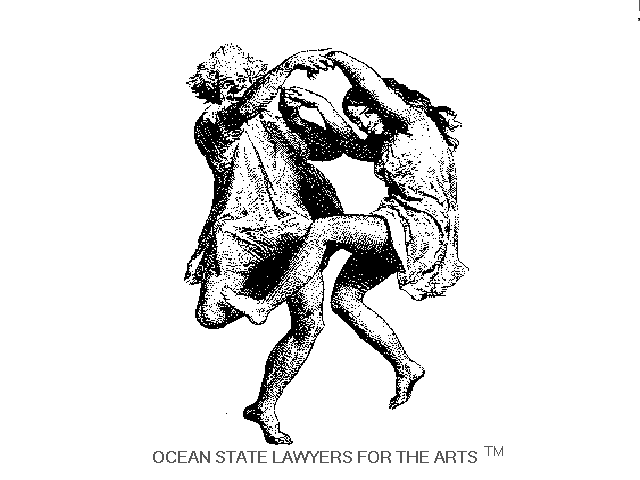
Once upon a time there was an illustrator named Jane, who designed greeting cards for one particular company. She started out as an employee of the company and everything she created for them was a work-for-hire. That means that as soon as she created the works, her employer owned them and all rights and copyrights in her works. Her employer also was considered the creator of them. She had no rights at all.
But that was okay. Jane was just starting out as a visual artist and she was happy to be earning money from her talent. After all, many artists could only earn a living painting houses instead of canvases.
As the years went by, Jane's talent developed and she realized that a large proportion of her employer's inventory was based upon her work alone. She decided that she would be better off selling her works to the card company as a free-lance artist, which is exactly what she did. She sold her works to the company for $200 each, accompanied by a document that simply said "Bill of Sale," stated the price per item, and stated nothing more. She intended to transfer to the company that portion of the copyright which would allow them to reproduce the design on as many cards as they wished. She believed that she retained the rest of the copyright for herself.
One day, when Jane was checking her mail, she found a catalog issued by the company, which had been sent to her by another graphic artist. In it she found a number of items which contained her works, but the designs had been changed in ways that ranged from subtle cropping to barely recognizable kallidascope-like creations. Jane was upset. Not only were her works being presented in a form which she never intended, but many of the crop-jobs also just happened to delete her name from the designs.
Jane hired a lawyer. He told her that the company could do whatever they wanted with the works-for-hire. As for the works she created as a freelance artist, there was a possibility that she could stop the company from changing the works, if she could prove to a court that the "Bills of Sale" only transferred the reproduction rights, and not the rest of the copyright, including the right to make derivative works. She decided to sue the company for copyright infringement.
The company defended itself by saying that since the transfer documents didn't specify the rights involved, all rights were transfered to the company. (The copyright Act does support this argument) You already know Jane's arguments. Strangely enough, the judge had his own ideas. He said that Jane didn't give the company any of the copyright, but only gave them a non- exclusive license to do whatever they wanted with her designs transferred by the "Bills of Sale." So Jane lost her battle.
This could have been the story, but the tale continues. Not only did the judge tell Jane that she couldn't stop the company from using her works in any manner they wished, but he and a number of higher court judges told her she would have to pay the company's attorney's fees. Although this last part of the decision made little sense, Jane was stuck with a bill for alot of money.
The moral of this story is to always get your agreements in writing and the written argeement must clearly state exactly what was agreed. Anything less could well come back and bite you when you least expect it.
OSLA is looking for submissions from artists and arts administrators working in all media, which will provide warnings to others as to what can happen in this world.
THIS WEBSITE CANNOT BE USED AS A SUBSTITUTE FOR SOUND LEGAL ADVICE FROM A COMPETENT ARTS OR ENTERTAINMENT ATTORNEY. In the event of a legal problem or question, specific legal consultation is advised. This website is intended only as a means of educating arts organizations and artists of all disciplines as to their potential legal rights and liabilities. The information provided is made available with the understanding that neither OSLA nor the office of David M. Spatt is engaging in the rendering of legal counsel.
copyright 1998 David M. Spatt, All rights reserved
Reproduction is prohibited without the express written consent of the author
